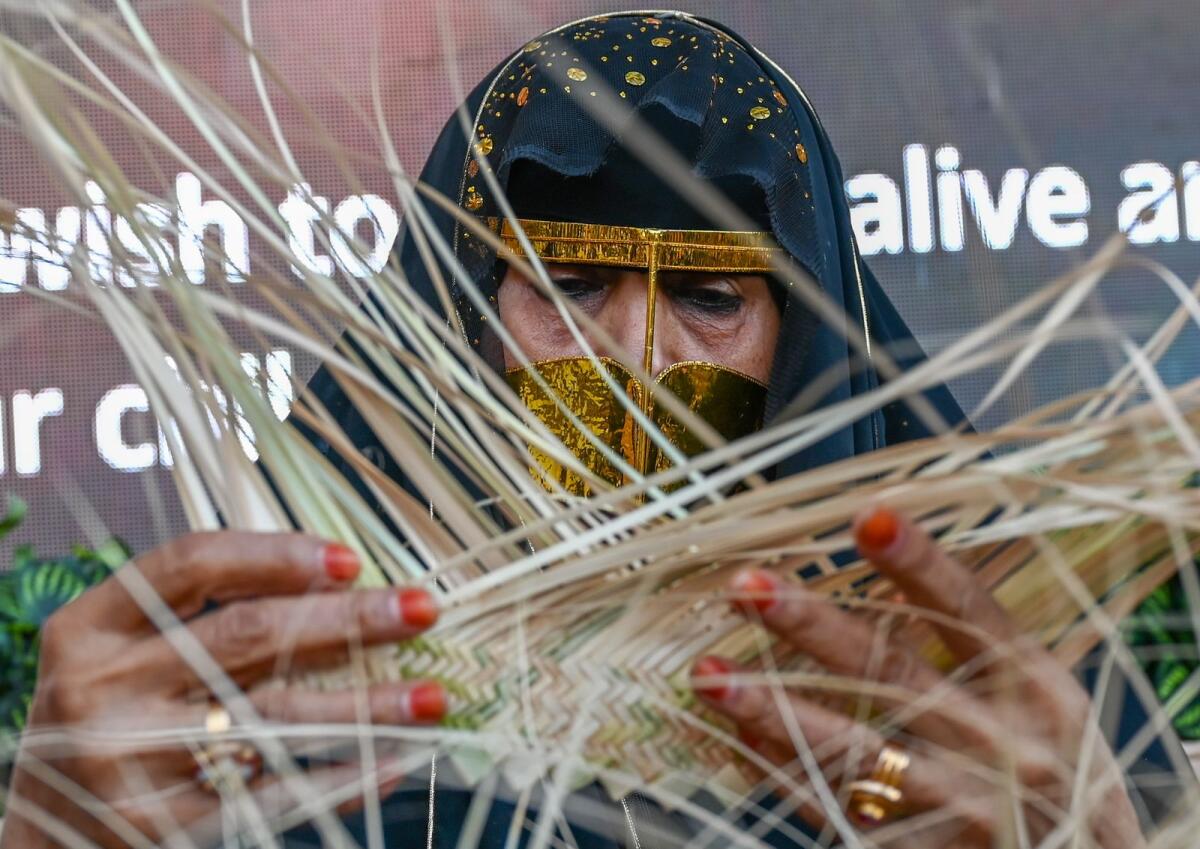Look: How Emirati women keep heritage alive, pass traditional weaving skills to generations
During COP28 summit, elderly women from the community showcased the art of Al Sadu, a Bedouin craft and highlighted their cultural legacy

Emirati woman wearing burqa’a showcases traditional form of weaving. KT Photos: Muhammad Sajjad
In economic terms, sustainability revolves around achieving an equilibrium between environmental considerations and economic pursuits. Essentially, it entails “meeting the needs of the present without depriving future generations to meet their own needs.”
Culturally, sustainability involves promoting and fostering the transfer of knowledge from the older generation to the younger one, ensuring the preservation of one’s heritage. This is what exactly unfolded during the two-week UN Climate Summit held at Expo City Dubai.
Inside COP28’s Green Zone, elderly Emirati women wearing burqa’a – the traditional form of modesty for women – were present every day during the two-week climate conference to showcase the UAE heritage, particularly Al Sadu, a traditional form of weaving practised by Bedouin women.
Al Sadu has been included in the UN representative list of Intangible Cultural Heritage of Humanity. In Arabic, ‘Al Sadu’ means weaving horizontally.


Beauty of Al Sadu
“Patterns and design reflect life in a desert environment,” Maha, a young Emirati who learned the art of Sadu weaving, shared with Khaleej Times. “The beauty of Al Sadu lies in its simplicity, where geometric designs form symmetry, accentuated by bright colours,” she added.
“Al Sadu is an intrinsic part of our Emirati culture,” Maha noted, adding: “Some mothers were really strict in teaching their daughters how to weave.”
She continued: “Back in the day – what I learned from my mother and grandmother – Bedouins weave to make accessories for their homes, camels and horses.
“Men would shear sheep, camels and goats, and the women cleaned and spun wool. The yarn is then dyed black, white, brown, beige or red and placed on a floor loom.”


Community affair
“The most important cultural part of Al Sadu is that Emirati women gather in small groups to spin and weave whilst sharing family or community news, chanting, singing or reciting poetry,” she added.
For Maha, bringing Al Sadu to COP28 was an important endeavour to promote culture and teach the young generation what sustainability really means.


“Al Sadu has been handed to us from one generation to the other – and it remains alive to this day and age of advanced technology. This has become possible because our community kept it alive,” Maha noted, adding: “The message that we wanted to impart here is that – like Al Sadu – sustainability is a collective effort. We must all work together and keep our planet alive for us and the generations to come.



ALSO READ:

Angel Tesorero
Angel Tesorero is Assistant Editor and designated funny guy in the newsroom, but dead serious about writing on transport, labour migration, and environmental issues. He's a food lover too.





